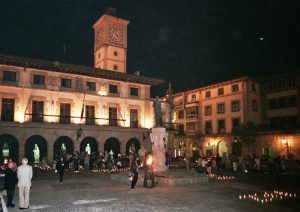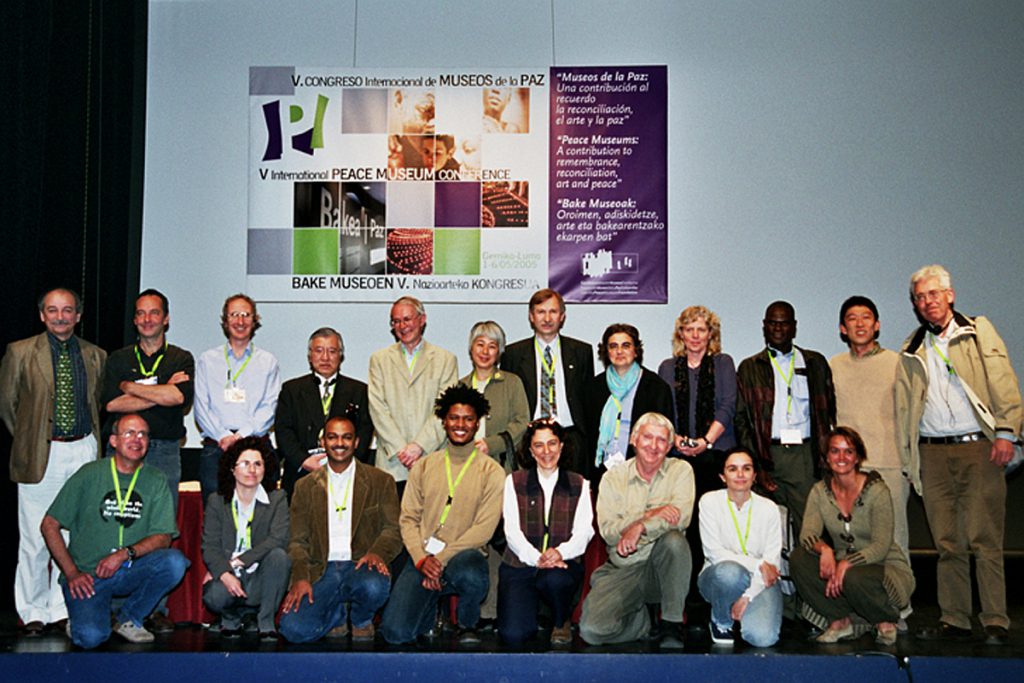Gernika-Lumo, Spain –
Just as Ieper is associated with the first use of gas in warfare (April 1915), so the small and undefended town of Guernica in the Basque country in northern Spain is associated with the first bombing from the air of a non-military town (April 1937). This occurred during the Spanish Civil War and involved planes from Nazi Germany. The outrage this barbarity caused is famously exemplified in Picasso’s painting, Guernica, his immediate, visceral response to this unprovoked war crime.
 The 5th INMP conference, titled ‘Museums for peace: a contribution to remembrance, reconciliation, art and peace’ took place in May 2005 and was hosted by the Gernika Peace Museum Foundation that had been created in 1998 by the town council of Gernika-Lumo. In 2003 a permanent exhibition had been opened to the public.
The 5th INMP conference, titled ‘Museums for peace: a contribution to remembrance, reconciliation, art and peace’ took place in May 2005 and was hosted by the Gernika Peace Museum Foundation that had been created in 1998 by the town council of Gernika-Lumo. In 2003 a permanent exhibition had been opened to the public.
The council declared Gernika-Lumo a city of peace and reconciliation and supports not only a modern and impressive peace museum but also an equally impressive peace research and documentation centre, Gernika Gogoratuz, which is focused on reconciliation. This concept is at the heart of peace-making: where there has been violent conflict and war, it is necessary for the parties involved to engage in a process of reconciliation in an effort to overcome the divisions of the past and avoid future hostilities.
Like many other museums located at sites of war, the purpose of the Gernika Museum is to document and commemorate the tragic events which destroyed the town and to promote reconciliation with the former enemy. The participation of members of ICOM (the International Council of Museums), and the organisation of several panels by one of its sub-groups on museums of historical memory, was a particular feature of the conference.
A substantial volume of conference papers, in three languages (Basque, English and Spanish), was published in 2006. INMP is greatly indebted to its board member Iratxe Momoitio, director of the Gernika Peace Museum, and the town of Gernika-Lumo for generously hosting the conference.
At the fifth conference, two important decisions were made regarding the name and functioning of the network. Firstly, its name was changed from International Network of Peace Museums to International Network of Museums for Peace (INMP). This change was meant to broaden the network and attract a larger and wider membership. Secondly, an executive board and advisory committee were established, and elections were held to fill the various positions, including that of general coordinator.
Sources and related documents:
Conference program 5th INMP Conference – program (PDF, 3.5MB)
Conference papers www.museumsforpeace.org


